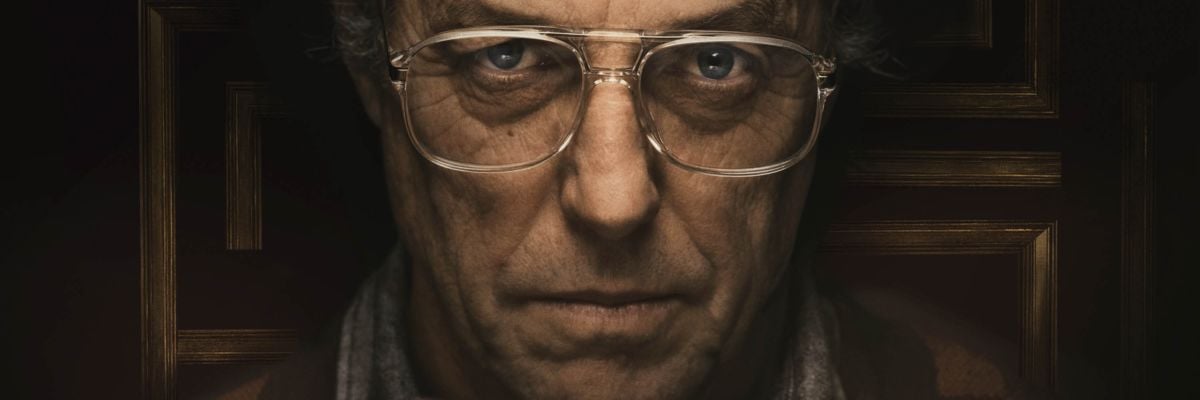
There is a convention among some Christians to declare themselves “heretics” pre-emptively. After all, the word heretic comes from the Greek word “to choose.” They imagine a faith untainted by the manipulation of religious authorities, who supposedly demand mindless adherence to arbitrary dogma. They make up their own minds. If these free-thinkers choose to say the Nicene Creed, for example, they really mean it. If not, that’s fine, too.
Traditionalists hold a different line. To them, belief is no mindless assent to a set of objective propositions, nor is it merely a prejudiced rejection of unorthodoxy. Rather, the choice in favor of God and the commitment to be obedient to his revealed commands are an act of grace, reflecting our acceptance of God’s love and our desire to live in communion with him. Evangelizing, therefore, is not only a matter of sound arguments and the anticipation of objections, but an invitation to an encounter with reality.
Heretic, written and directed by Scott Beck and Bryan Woods, explores the complexity of why and how we choose to believe in a way we rarely see in Hollywood movies. The film stars Sophie Thatcher and Chloe East as Sister Barnes and Sister Paxton. These two Mormon missionaries encounter their worst nightmare in Mr. Reed, played by Hugh Grant, who has found yet another superb villain to play in the second half of his career. Significantly, both Thatcher and East are real-life former Mormons, and their nuanced performances convey a refreshing sincerity.
In Heretic, the choice of religion is no joke, and no mere thought experiment.
For example, Barnes and Paxton have seen and are not bothered by the parody musical The Book of Mormon. Likewise, the pair experience indignities in the town where they have been assigned, but they are constant in their encouragement of each other and their commitment to the mission. They dream of their future husbands, and they are honest about their shortcomings. But then they meet Reed, whose goal is not only to flex his intellectual muscles and destroy all their arguments, but to terrorize them personally. In fact, he wants to supplant their god violently.
Mr. Reed, whose name may be an homage to Pascal’s “thinking reed,” at first seems too good to be true for a pair young of women keeping a score card of conversion. He is well informed and inquisitive, and he appears to be on the right track about man’s desire for God. Soon, however, the tables turn, and Reed becomes a missionary to them, explaining his own cynical perspective on the major religions. First, with dastardly charm, he propounds the hackneyed trope of a common origin for many sacred stories. Then he moves on to a sinister theory of religious thievery that he dubs “iteration,” and finally he shifts gears to a Matrix-like metaphysics in which the real world is obscured by religion.
It’s an apologetical mess. And when Reed attempts to conclude his presentation with an act of wonder-working, Sister Barnes suspects a conjuring trick instead of a divine miracle.
Heretic contains several gruesome scenes that many viewers will find objectionable. The real terror, however, lies in the darkness at the heart of Reed’s faith. The age-old question of the martyrs is at the forefront: would you die for what you believe in? The film reminds us that the sinner assumes God’s authority in both small and big ways and makes sacrifices in gratitude. In contrast, the psychopath has no doubt of his own authority and apologizes for nothing. He is the ultimate heretic.
Heretic is a change of pace for the horror genre. It is like a stage play, with long scenes full of rich dialogue about the things that matter most. Moreover, for the first time ever in my movie-watching life, I was both surprised and reassured by a line in the credits: “No generative AI was used in the making of this film.” Film magic is deliberately put to one side in this unusual examination of the question hanging in the air since Jesus stood before Pontius Pilate: what is truth? In this way, unlike a masterful religious horror movie like The Exorcist, Heretic is not a spectacle of good versus evil, but a heady presentation of competing visions of reality.
Nonetheless, Heretic is a modest achievement that will not be remembered alongside the great religious dramas. No big spoilers here, but no one will leave the theater believing that any religious system, including Catholicism, could explain the universe. Rather, it is a suspenseful and intelligent film, but it does not offer the kind of spiritual depth or potential for extended contemplation that a classic like The Exorcist offers.
For anyone looking for a small dose of theological reflection packaged in a good scare, however, buying a ticket to Heretic is a worthwhile choice.



